
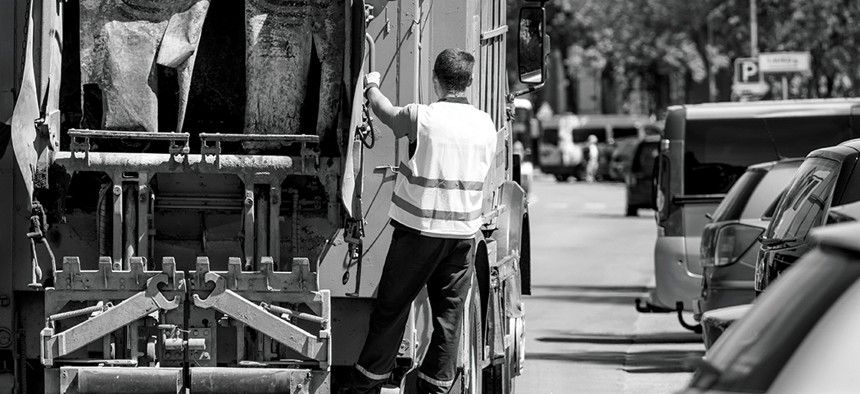

The sight of a bin collector riding on the back of a refuse truck will be no more, after the few remaining vehicles in the island fitted with foot plates had these removed after a worker was seriously injured.
The accident, which took place in 2021, saw the person riding on the back of a refuse vehicle suffer significant injury when the bin lorry reversed into an item of street furniture.
An investigation was led by the States of Jersey Police, while the Health and Safety Inspectorate (HSI) decided to engage with all companies known to offer a curbside refuse collection to highlight the legal requirements relating to the fitting and use of footplates, which were all subsequently removed.
Removing the footplates over safety concerns was among the key 'targeted initiatives' carried out by the HSI last year, highlighted in its recently-published annual report.
Other health and safety improvement initiatives outlined in the report included trying to minimise the risk of electric shock when working on scaffolding around streetlamps, pointing out unsafe warehouse conditions, and addressing the poor standards of welfare facilities provided for construction workers. The latter was also raised as an issue back in 2020.
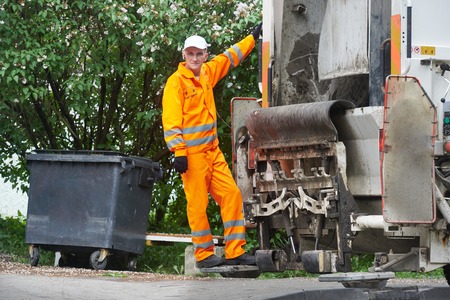
Pictured: Bin collectors are no longer able to ride on the back of the trucks.
The potential health and safety risks to workers in the emerging medical cannabis industry was also investigated by the HSI last year, according to the report, as well as work implications for those prescribed medicinal cannabis. It was noted that workers who operate dangerous machinery or carry out high risk work will require particular consideration at the industry grows in future years.
The report also outlined the contents of a number of articles and Safety Alerts which were published on the HSI website throughout 2021 following accident investigations. Guidance on the safe use of fork-lift trucks in the workplace was published following two accidents in quick succession where pedestrians were struck by a reversing forklift truck in the workplace.
A Safety Alert about the danger of drum explosions during hot works was published after an employee sustained injuries whilst cutting through a diesel fuel drum with a petrol cut-off saw.
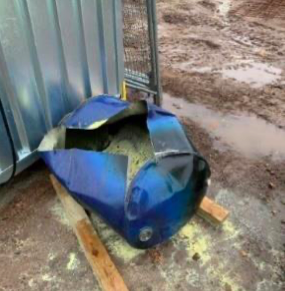
Pictured: The explosive force generated when the explosive vapour in the diesel fuel drum ignited.
The HSI also investigated several accidents in 2021 where kitchen workers sustained serious and potentially life-changing injuries after coming into contact with hot liquids or steam.
One example highlighted in the report was that of a kitchen worker who inadvertently dropped a pot of hot oil whilst cleaning a deep fat fryer and slipped over, landing with both arms immersed in the pool of oil.
The report also outlined some of the six health and safety cases which were sentenced by the Royal Court during 2021, including one case in which the Government has been fined £80,000 after a suicidal patient jumped off the roof of Orchard House - just 18 months after the Health Department was warned to make changes to the mental health facility to avoid such incidents.
The HSI also used their annual report to summarise the results of a questionnaire which is automatically sent to every claimant submitting a medical certificate for STIA which indicates that their absence is work-related.
Whilst this relies on the individual concerned to voluntarily return the questionnaire, the report explains that "those that are returned provide valuable information which is used to inform and influence the planning of the Inspectorate’s proactive work programme".
56% of claimants following a work-related accident returned their questionnaire. These show that the 4 main causes of accidents and the injuries sustained remain consistent with recent years.
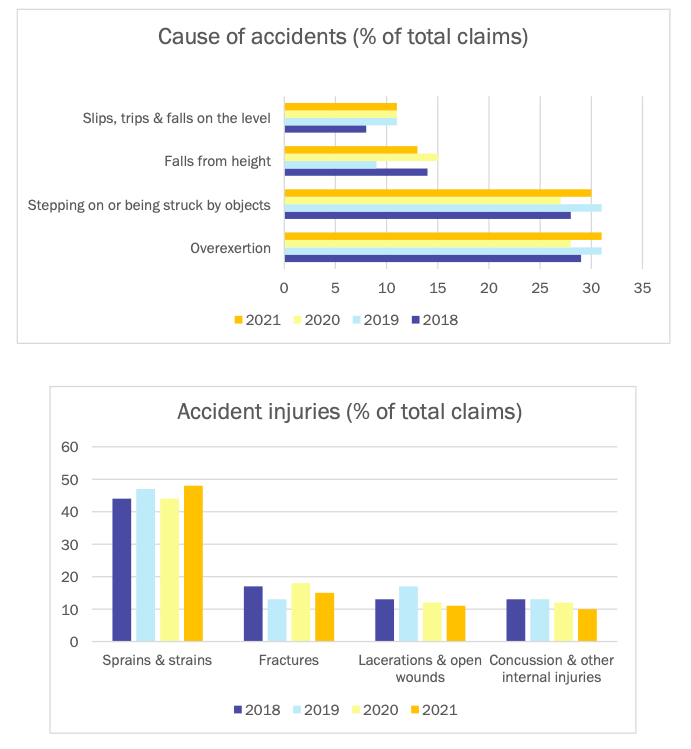
Pictured: The results of the questionnaire for claimants following a work-related accident.
44% of all claimants suffering from a work-related ill-health disorder accident returned their questionnaire. Unsurprisingly stress and musculoskeletal disorders accounted for the vast majority of all work-related ill health claims, making up 94% of the total claims submitted.
The report explains that "this remains largely unchanged from year to year, reflecting the typical local industry profile with few heavy engineering and/ or manufacturing industries which carry a high burden of occupational lung disease in the UK".
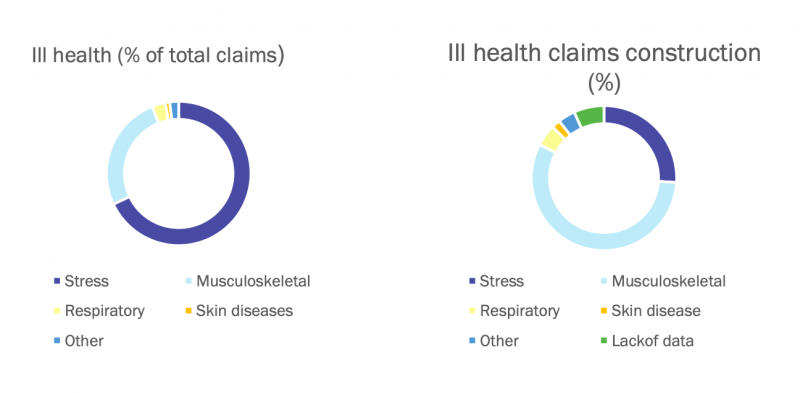
Pictured: The results of the questionnaire for claimants suffering from a work-related ill-health disorder accident.
The report concludes by suggesting that "targeting work-related ill-health will be a priority for the HSI in 2022", particularly in light of the new ways of working for many as a consequence of the pandemic.
The HSI suggests that "the significant increase in home and hybrid working may result in increased risks from musculoskeletal disorders, lone working and mental health disorders", although the impact of this is yet to be seen and is likely to be included in the 2022 annual report.
Comments
Comments on this story express the views of the commentator only, not Bailiwick Publishing. We are unable to guarantee the accuracy of any of those comments.